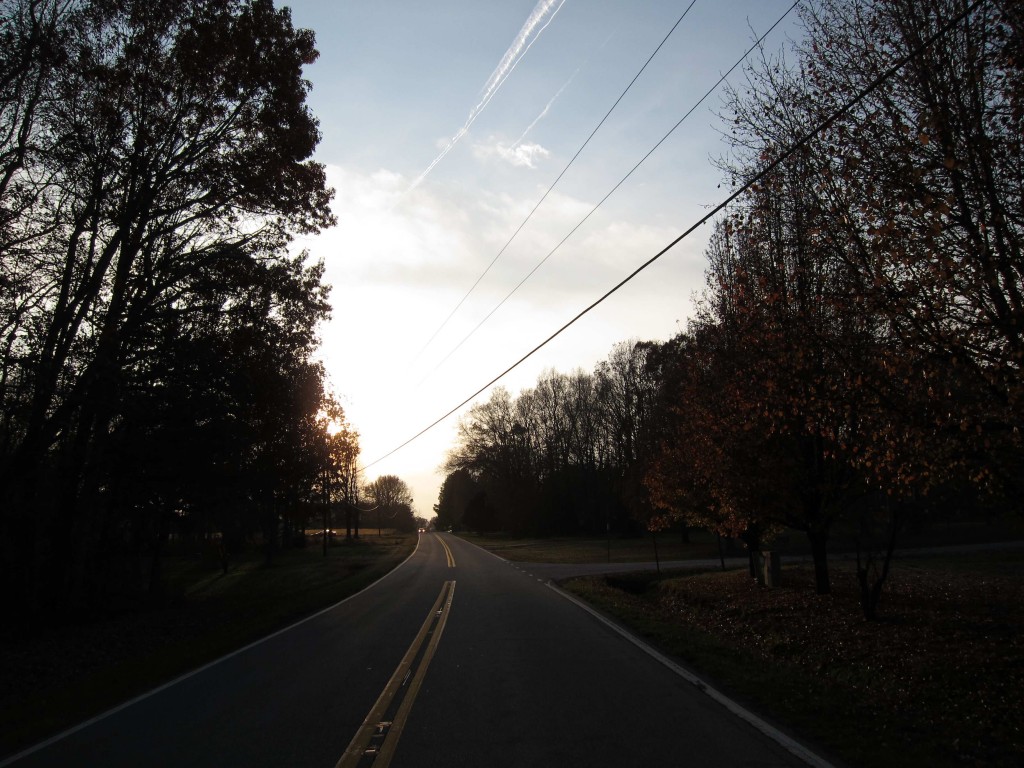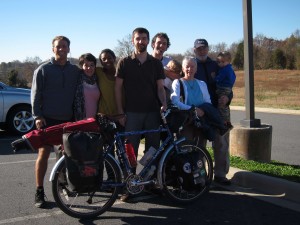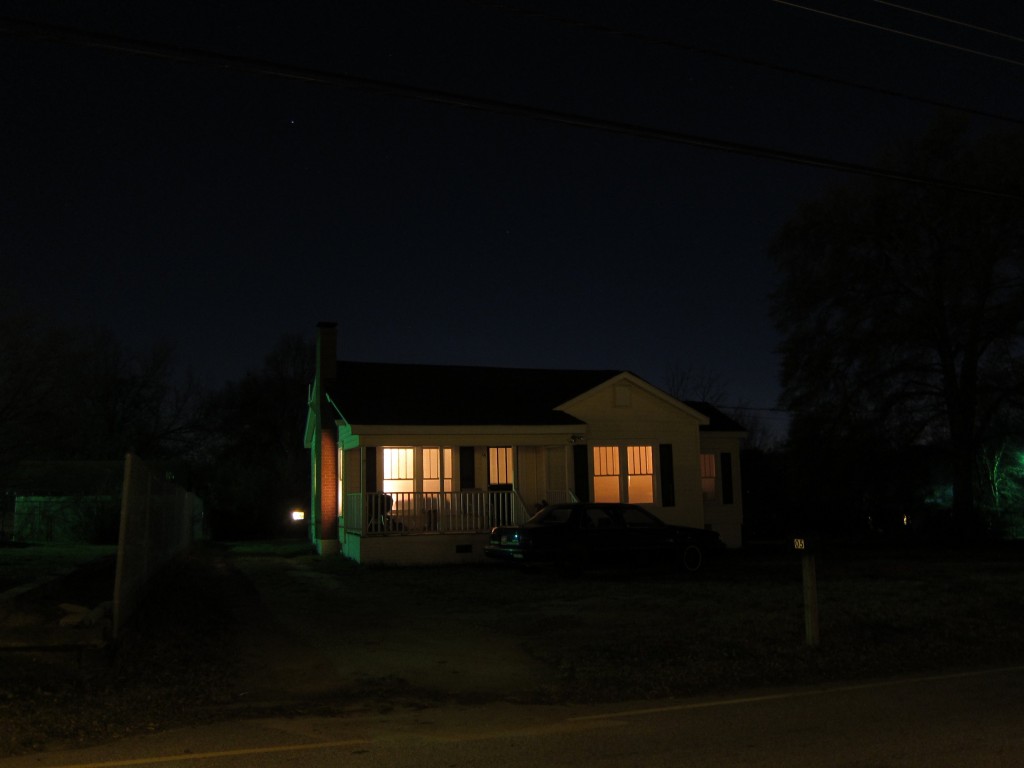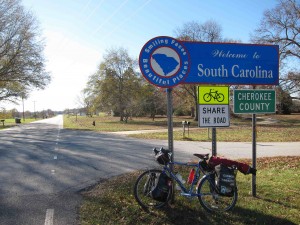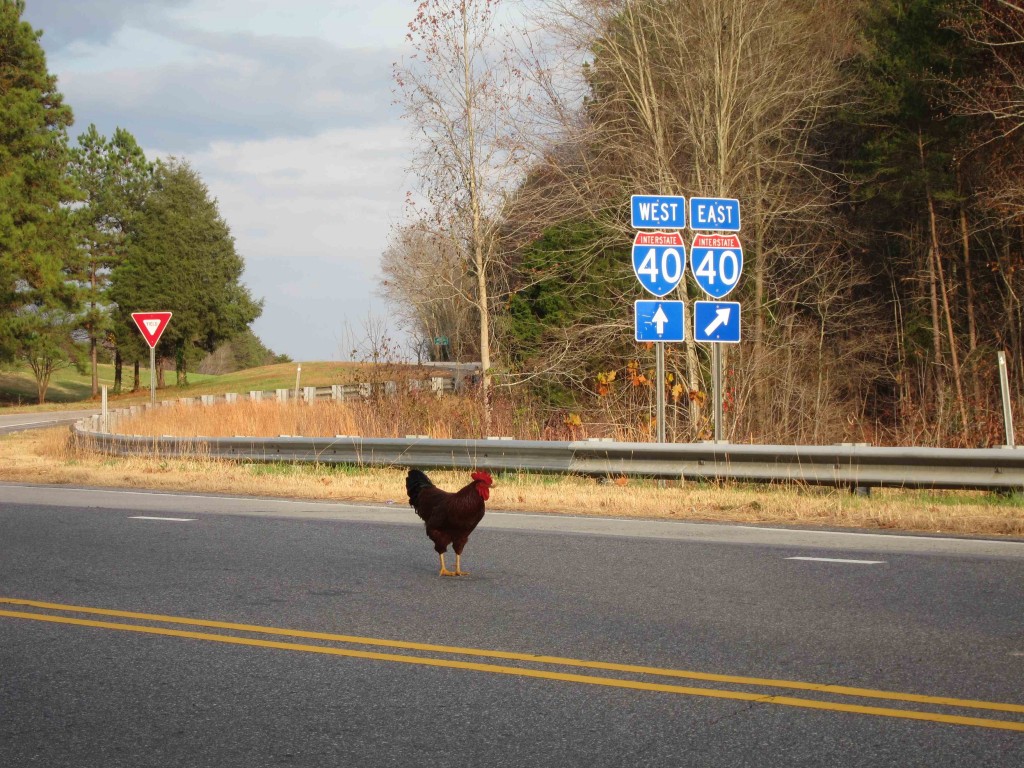28 Nov, 2011
When exactly does Thanksgiving end? How long is this period? Is it one Thursday, a weekend, or a season? Of the ingredients that are essential to the holiday, where does gratitude rank for you? As we resume the lives paused by gratitude, how have we participated in that endless feast?
While no religious tradition should lay claim to a holiday that also celebrates religious plurality and freedom to worship, Thanksgiving can remind Christians of key tenets of their faith. In fact, Thanksgiving might be the most Christ-like holiday celebrated in the United States. In fairly universal practice, Americans take a break from the business week to gather together for a meal with friends and family. Ostensibly, we do this in gratitude that celebrates the blessings that are both beyond us and the product of our labor. In theory, we do this in memory of a historic occasion in which a small group that symbolizes our nation was vulnerable and at the mercy of others.
I find it admirable that one of our most important holidays celebrates this fragility. Rather than gathering together to celebrate our victories and accomplishments, we all take several days off in honor of a moment when our fragility and gratitude were our greatest assets. In popular culture, we tend to forget the importance of fragility in the Christian tradition, but it plays a prominent role. Jesus—the divine incarnate—appears to the world as an infant born in the equivalent of a garage or barn. After a life of teaching about love, he was killed by those of his own religious heritage working in cahoots with the occupying authorities. Early Christian imagery depicted Jesus most commonly as the lamb. This depiction was in direct conflict with symbols of power and authority such as the Roman army. Imagine the most powerful military on the planet lined up to attack a lamb. This is the power of fragility present in the Christian tradition. In the Thanksgiving narrative, we are reminded of both our strength in fragility and our weakness in destroying the Native cultures that helped us when we were in need.
In the face of climate change, many Christians feel a sense of helplessness or fragility. What can one person do against such a huge problem? Is it too late for us to do anything meaningful? How do little churches help the suffering of millions we are beginning to see? These are powerful questions, and they can be overwhelming. I have found that their enormous power is stripped when we respond in the most loving way we can to help specific people. By focusing on the love of specific neighbors affected by the changes and on our contributions as communities, the grandeur of this climate crisis diminishes. As Christians, we look for hope in hopeless scenarios, and we remember that love that conquers all. By living into that love, we participate in the process that can overcome our fear and failures.
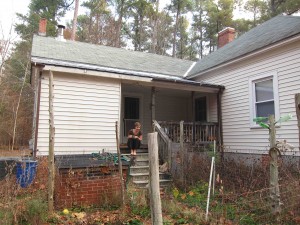
Thanks to Leonora Tisdale and her housemates for opening their wooded home in Durham to me! Thanks also to Nora Tubbs Tisdale for making that connection happen!
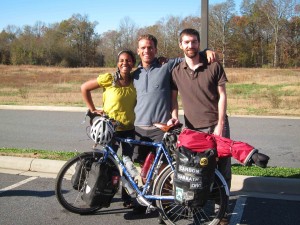
Thanks again to Cherice and David for being spiritual family! Howdy to those members our house church who keep up with this blog!
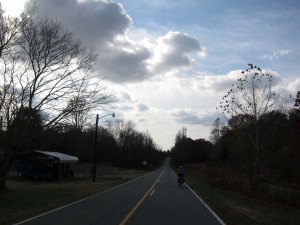
The road is full of surprises. I rode for an afternoon through the North Carolina piedmont with the director of the bicycle transportation for Charlotte, NC. Thanks to him and all of you who have crossed my path while cycling!
It is difficult to overstate the value of gratitude in the Christian tradition. In the gospels, Jesus gives thanks in just about everything he does. Even after weeping over the death of his friend Lazarus, he thanks God. In Christian liturgy, Jesus’ gratitude is most clearly reenacted in the celebration of communion—the holy feast that connects participants to the divine on multiple levels. From the Psalms to Israelites in the desert and the Holiness Code of Leviticus, gratitude is fundamental to Biblical narratives. Like our Thanksgiving, that gratitude is often centered around meals.
At present, we face the fruit of thankless action in which humanity has turned away from our gratitude for the gifts of creation, life, and the divine presence among us. It is time for the Christian community to turn that around. We do it for the sake of our neighbors. We do it for our love of God. But we also do it so that we might live into our blessings with mindful gratitude rather than ignorance.
While cycling each mile of the shifting landscape of our country, I am becoming more aware of our blessings. I know the wealth of our land. I am thankful for the kindness of each person who waves from a tractor, lawnmower, trampoline, rocking chair, motorcycle, car, truck, bicycle or tricycle. I thank all of you who have taken the time to participate in this Sabbath with me. I thank you who support me with food, money, shelter, prayer, and kind words. I thank those who oppose the trip for reminding me to love in all circumstances. I thank those willing to participate in hard conversations. And I thank God for the love that works through and in all things. My cup is overflowing, and, in the words of Randy Newman, “I think it’s going to rain today.” Thank you, rainy northern Georgia! Thank you all!
Until we meet again
More eternally grateful
Than we thought possible


